If you are really determined for it to be in PHP, you could in theory, create a php module in c, and form the bridge for fastCGI in c.
After which im guessing, you would run a PHP script accessing fastCGI as a standalone program, running a loop and accepting requests. In which your using PHP as a "persistent virtual machine" (could not find a better term), that communicates via fastCGI.
I do agree that the reloading of several of your dependency libaries / etc, is a very easily over-sighted performance drain. However, it maybe intentional design, in simplifying the PHP development cycle. Think of the global variable mess inexperienced users would make, in a persistent environment. Toss in the fact that most fastCGI setup, will initialize multiple copies / threads according to the load. Its a small can of worms. Starting a blank new slate for each request simplifies it.
However, honestly... if your that concern in performance, you might as well consider fastCGI C++ / node.js, as alternatives.... Having developed for JavaScript/PHP/C++, your idea is definitely possible... However it really boils down to cost-benefit... Is it worth the effort?, etc.
PS : You can also consider compiling your PHP sites via hip-hop.
